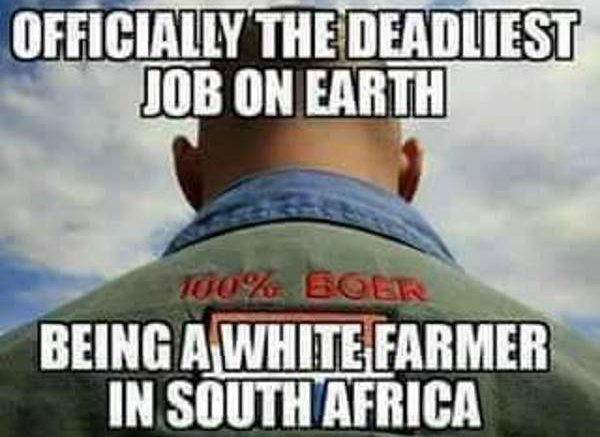News | August 8, 2019
South Africa has long had a serious problem with crime. The murder rate is 36 per 100,000, meaning 57 people are murdered each day, placing South Africa’s homicide rate just behind that of countries now at war. Of the ten worst precincts for murder, seven are in the province of Western Cape. Nyanga has the highest murder rate in South Africa, helping make Cape Town the second most murderous city in the world and the crime capital of South Africa. The situation there is so bad that the South African National Defence Force (SANDF) has deployed troops to assist the South African Police Service (SAPS) in the Cape Flats area, a gang-dominated suburb of Cape Town.
According to a recent survey, SAPS is considered to be the most corrupt institution in South Africa. Four police commissioners in a row were removed on suspicion of corruption or being unfit for office; senior appointments within the justice system are perceived as resulting from factional disputes within the ruling African National Congress (ANC), or as attempts by the ruling elite to avoid facing criminal charges.
For their part, with a strength of just under 200,000 officers for nearly 58,000,000 people, SAPS is considered understaffed by more than 60,000 officers. As of late June, 26 South African police officers had been killed in 2019. Analysis from 2018 suggests that more than 80 South African police are killed each year. Tellingly, in the Cape Flats area, the criminals are beginning to fight back against the combined strength of the SAPS and SANDF.
This provides context to view the Farm Attack phenomenon. The definition of a “Farm Attack” can vary but generally three criteria – 1) political incitement, 2) gratuitous torture (even of the elderly and children, and after victims have stopped resisting), and 3) public praise of the crimes – set the Farm Attacks apart from “social fabric” crimes.
In 2012, Ria Russouw was living with her husband on a farm at De Deur south of Johannesburg; she told her story via email:
We had an electric fence with an alarm system all around the house to keep criminals out but one night a few of them dug a hole underneath the fence and overpowered us as we unlocked the door in the morning.
There were two of them and they tied us up and started beating my husband demanding money and firearms. They found the key of the gun safe, took his collection of weapons and then tortured him again because the R200.00 that they found in the house was not enough.
They jumped on his back as he was made to lie down and they threatened to burn me with an electric iron if we do not tell them where the rest of the money was.
Realising that there was no more money to be found they left. I was able to get myself untied and radioed the neighbourhood watch who helped us.
My husband was taken to a government hospital where he stayed a week without any treatment in spite of me sitting there the whole week waiting for a doctor to see him.
After a week I was told that he was better and was being discharged; he could not walk and me and my daughter had to carry him to the car.
He passed away the next day and after more than a year we got the post-mortem report which stated that he died of lung cancer.
The police never investigated the matter although the so-called detective told me that he knew where the perps lived.
In a particularly notorious 2017 Farm Attack, a husband and wife were tortured with a blowtorch and knives then left for dead, the woman with a plastic bag stuffed down her throat.
The Farm Attacks have their root in the Cold War era as Soviet-backed communist insurgents were attempting to “liberate” southern Africa from pro-Western governments; within South Africa, the Farm Attacks were specifically part of an ANC attempt to terrorize white farmers off the land, as the ANC’s military wing sought to make South Africa ungovernable.
After the war ended, the ANC’s leader, Nelson Mandela, was elected President of South Africa; the Farm Attacks continued, but Mandela tried to end them, prioritizing rural security. After Mandela left office, the ANC reversed course, deprioritizing the Farm Attacks and disbanding the Commando System, a critical rural security militia organization that served as auxiliary police.
The current President Cyril Ramaphosa, from the ruling ANC, has denied large-scale killings of white farmers but civil rights organization AfriForum conducted an analysis of SAPS statistics, confirming that Farm Attacks are on the rise, contrary to recent media claims.
Concerned South Africans are trying to bring international attention to this matter; in May, one South African emailed the staff of South Carolina’s Senator Lindsey Graham:
“There is a white genocide going on… and we all have been living in fear and anticipation. Elderly are being raped, tortured and murdered… for something as petty as a phone. Our farmers are being slaughtered. We are denied jobs because of our skin colour.
[T]his is still “apartheid” just turned towards the white minority.”
The murder rate of white South African farmers is three times that of SAPS officers, and five times the South African average. Furthermore, research by Cristopher Gumbi suggests government or SAPS complicity.
To satisfy the UN criteria for genocide, violence does not need to target all members of an ethnic or other group; killing, causing serious bodily harm to, and making life unbearable for an identifiable subgroup is sufficient. What is happening to South Africa’s white farmers meets these criteria.

